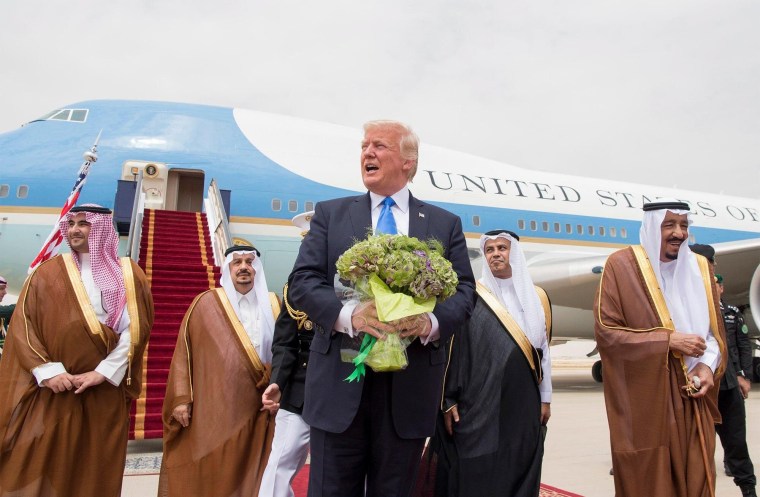The connections between Trump World and Saudi Arabia have long been a source of controversy, but as Rachel noted on the show last night, there's a new report that takes the broader story in an even more serious direction.
Whistleblowers from within President Donald Trump's National Security Council have told a congressional committee that efforts by former national security adviser Michael Flynn to transfer sensitive nuclear technology to Saudi Arabia may have violated the law, and investigators fear Trump is still considering it, according to a new report obtained by NBC News.The House Oversight Committee has formally opened an investigation into the matter, releasing an interim staff report that adds new details to previous public accounts of how Flynn sought to push through the nuclear proposal on behalf of a group he had once advised. Tom Barrack, a prominent Trump backer with business ties to the Middle East, also became involved in the project, the report says.
The committee's report is online here.
Right off the bat, it's difficult to understand the rationale for providing Saudi Arabia with sensitive nuclear technology: the Middle East giant already has an abundance of oil, so it's not as if Saudi officials have an energy problem they hope to solve with nuclear power plants.
That said, once a country has a nuclear energy program, it's not too big a leap before it could have a nuclear weapons program. It's why there are laws in place that restrict the transfer of nuclear technology.
It's against this backdrop that Democrats on the House Oversight Committee believe Donald Trump's team may have circumvented those laws -- even after lawyers for the National Security Council delivered warnings on the subject.
Making matters worse, some of the officials involved with the efforts had conflicts of interest, thanks to business ties with Saudi Arabia.
Part of what makes the story notable is the involvement of Michael Flynn, the president's disgraced former national security adviser, who's currently awaiting sentencing after having been convicted of unrelated felonies. Indeed, yesterday's report noted that Flynn also had a consulting gig with a subsidiary of IP3 International, a company working on selling nuclear equipment to Riyadh.
But just as important are allegations that those same efforts continued long after Flynn left the White House two years ago.
Rep. Raja Krishnamoorthi (D-Ill.) told Rachel on the show last night that other members of Team Trump, including Jared Kushner, who has his own Saudi ties, "basically took it upon themselves to continue with this plan."
The list of laws the administration may have broken isn't short. Among the areas of concern are possible violations of the Atomic Energy Act, conflict-of-interest rules, and disclosure requirements for security clearances.
The House Oversight Committee's report featured interim findings, and the investigation will continue. For the White House, it's yet another headache that may yet carry real consequences.
Postscript: It's not yet clear why, exactly, the White House would want Saudi Arabia to have this technology, but in case anyone's forgotten, it's probably worth noting for context that Donald Trump, as a presidential candidate three years ago, publicly endorsed the idea of more countries developing nuclear weapons programs for their own national security interests.
Among the countries the Republican had in mind: Saudi Arabia.
